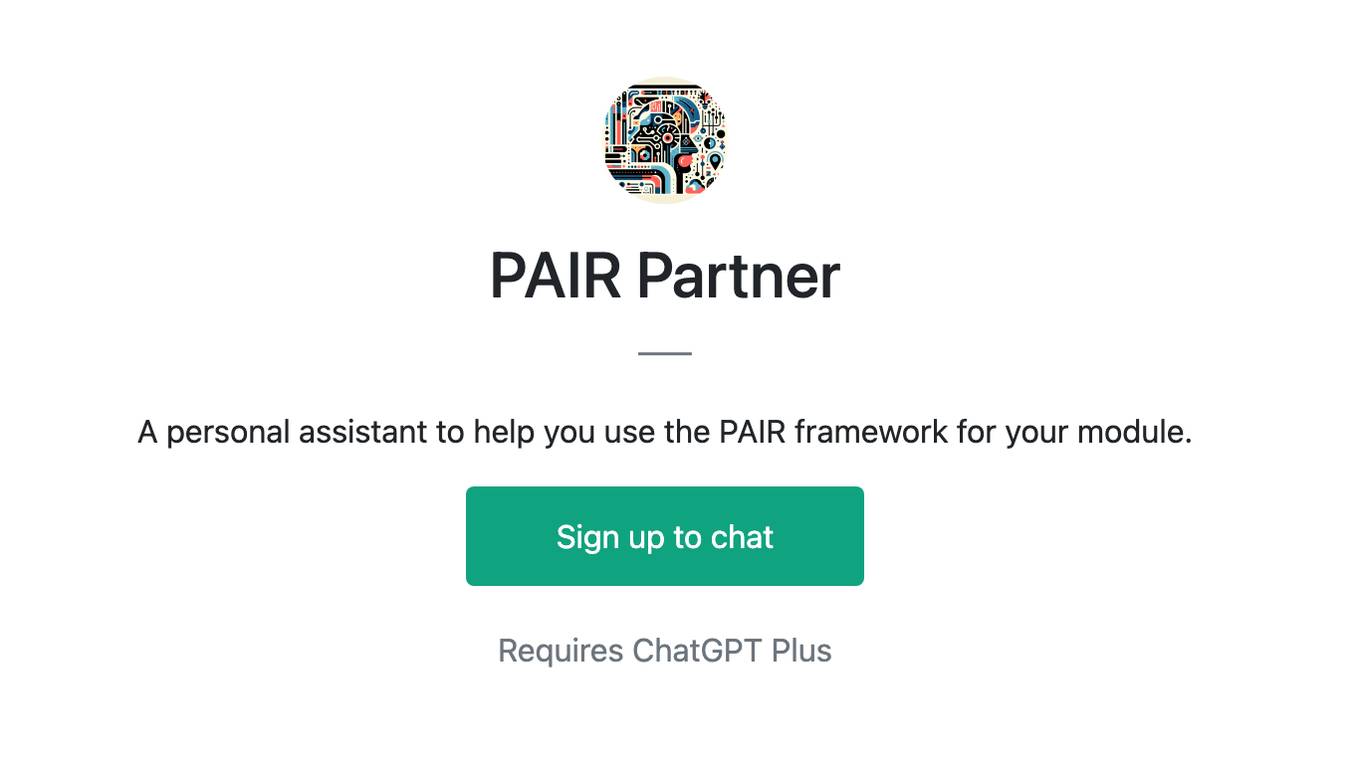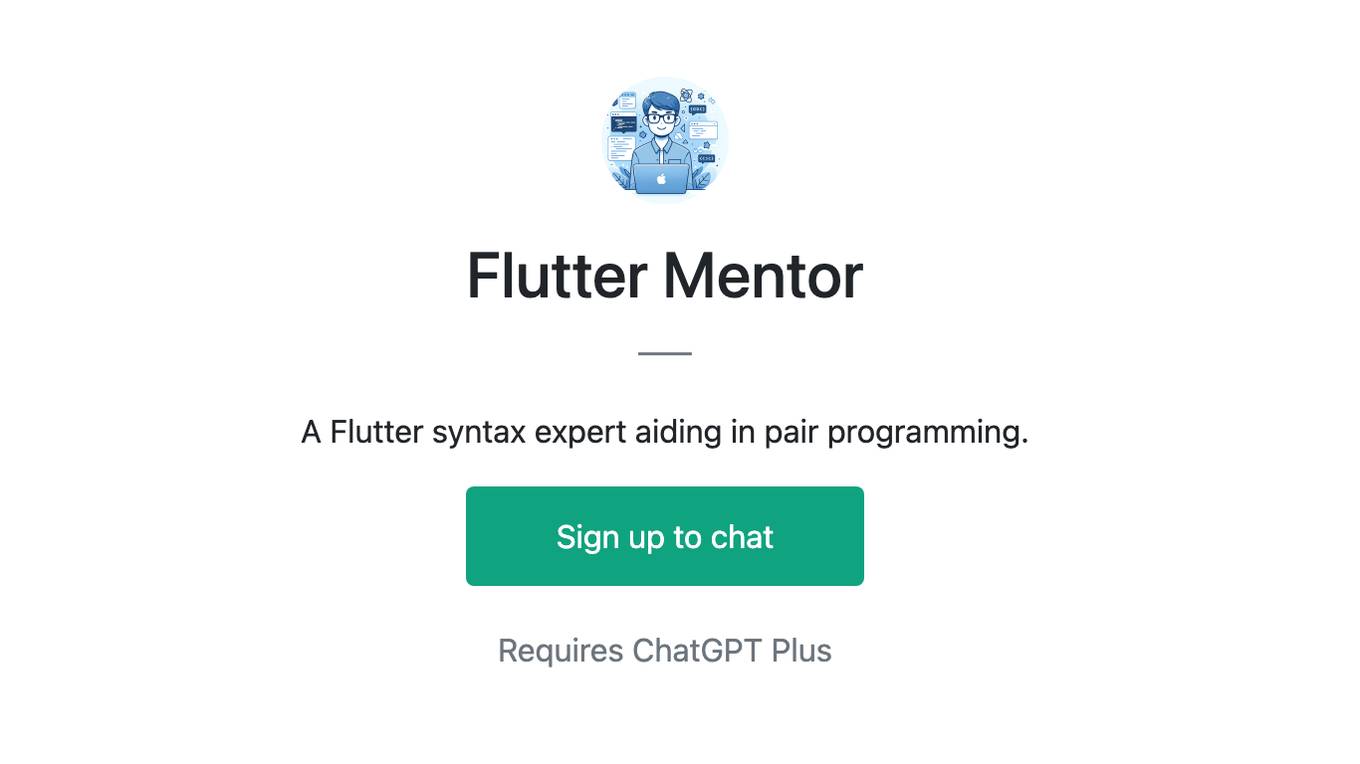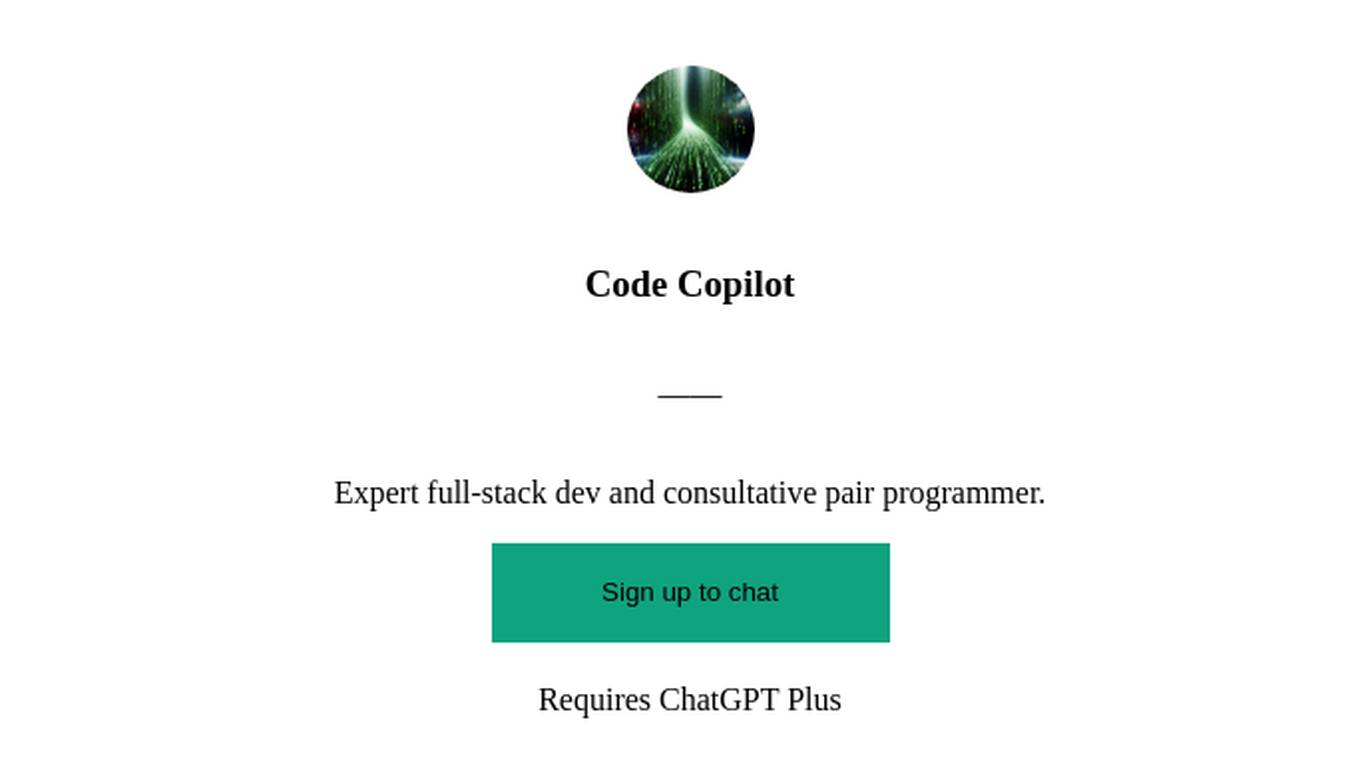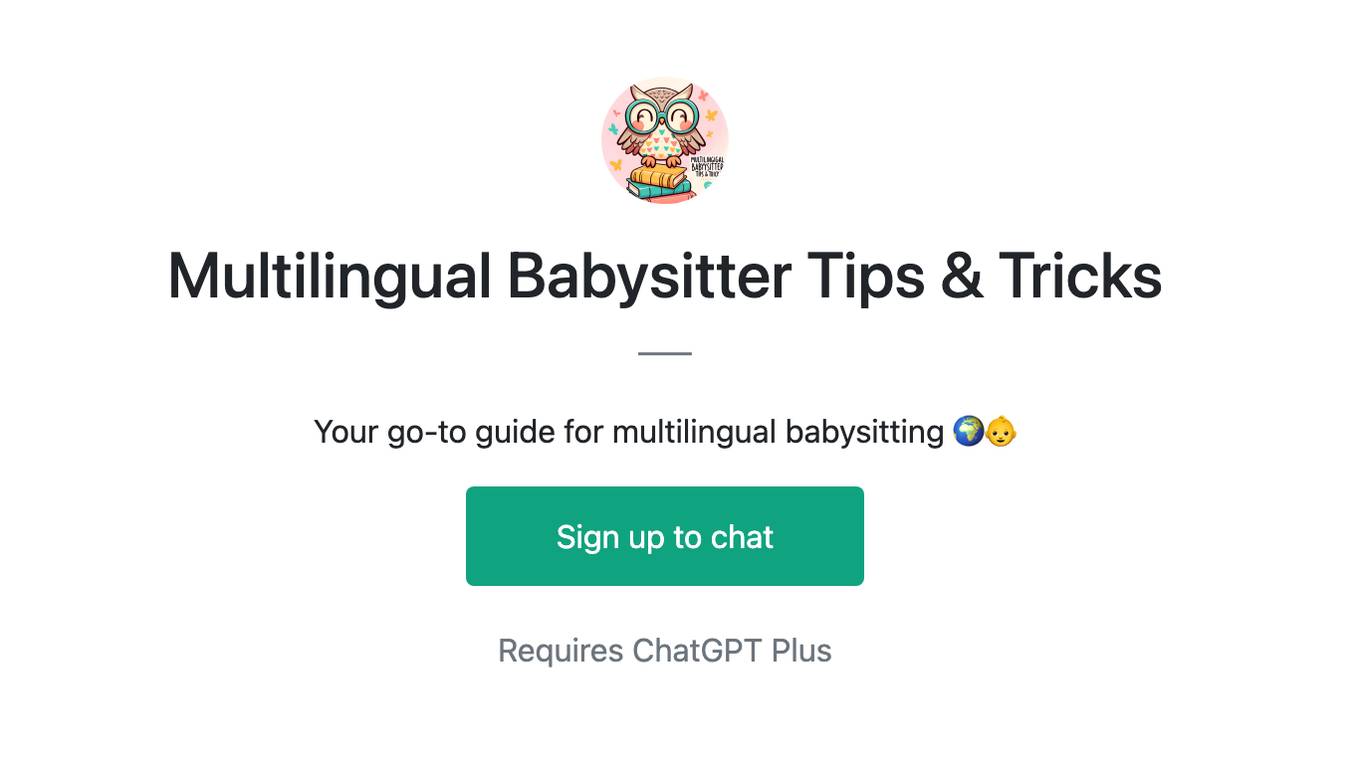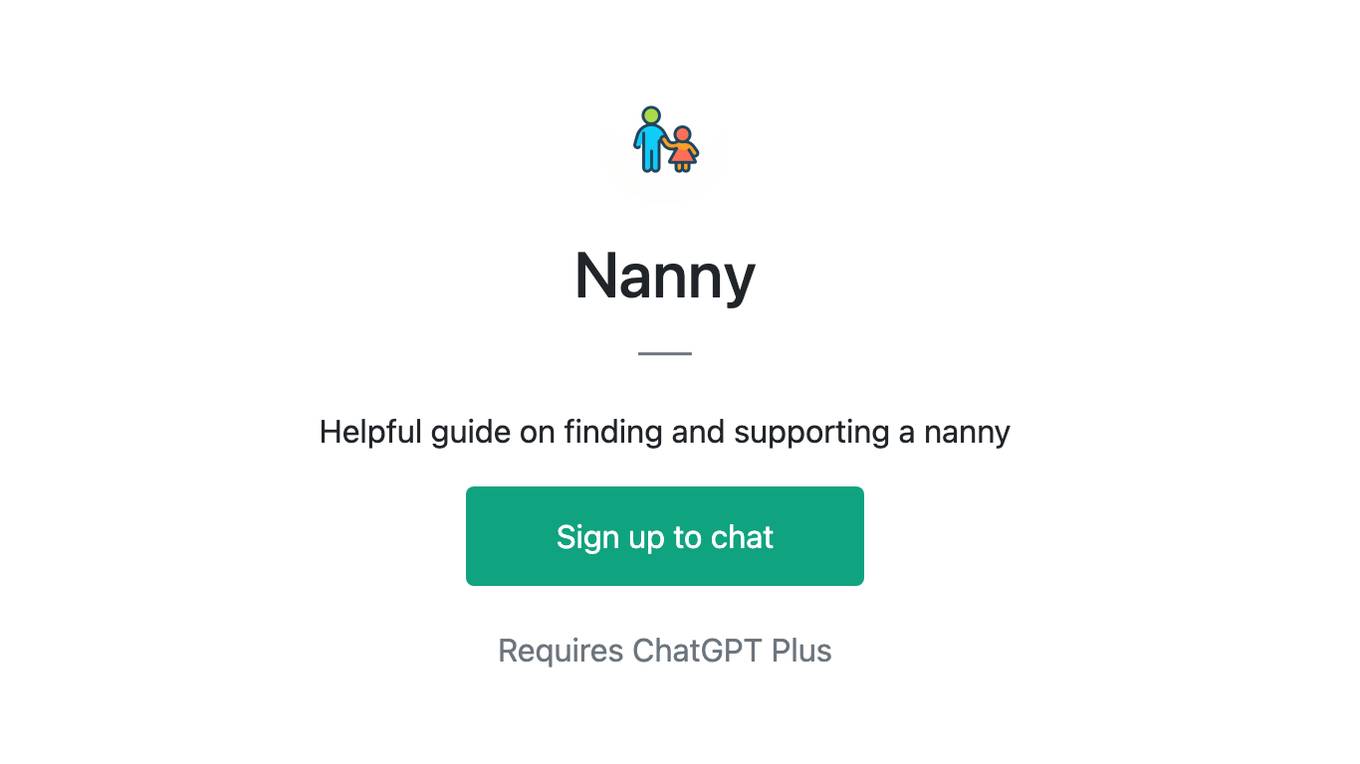Best AI tools for< Pair Data >
20 - AI tool Sites
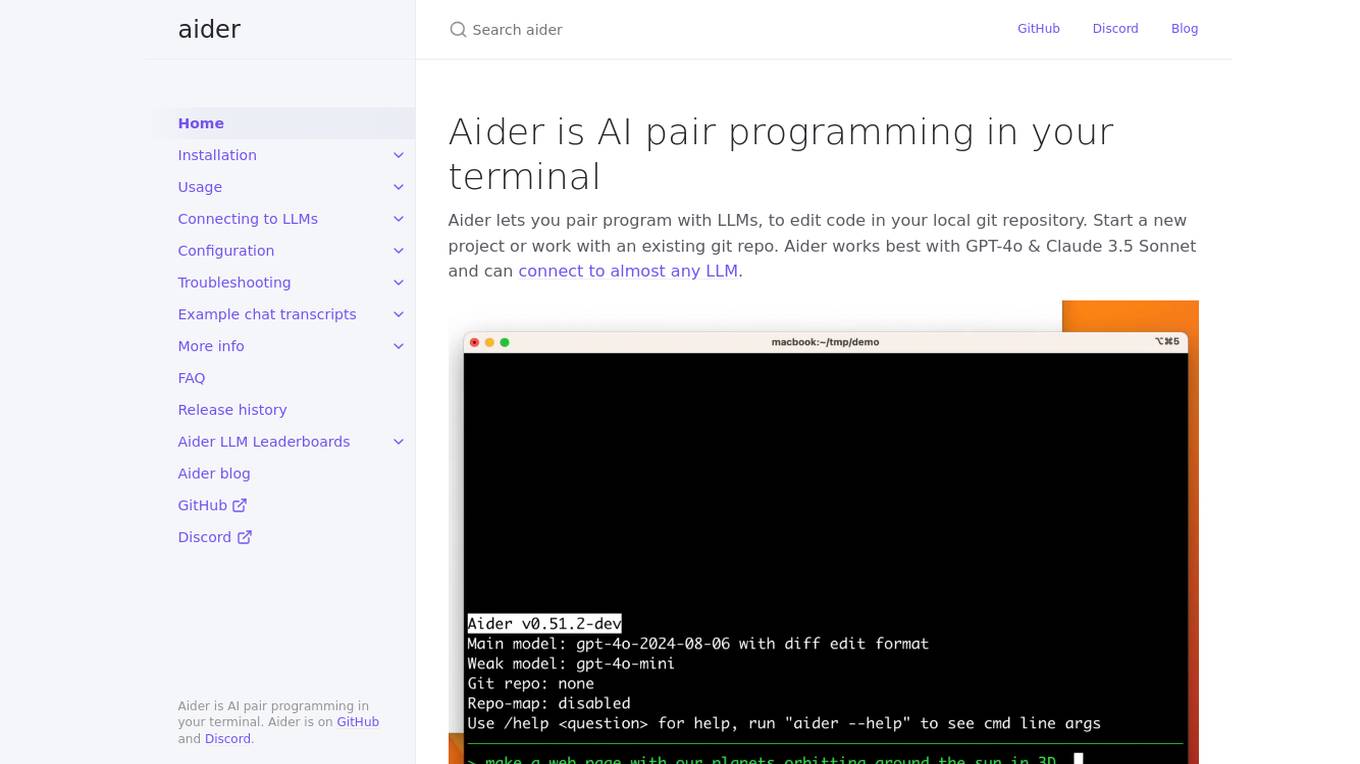
Aider
Aider is an AI pair programming tool that allows users to collaborate with Language Model Models (LLMs) to edit code in their local git repository. It supports popular languages like Python, JavaScript, TypeScript, PHP, HTML, and CSS. Aider can handle complex requests, automatically commit changes, and work well in larger codebases by using a map of the entire git repository. Users can edit files while chatting with Aider, add images and URLs to the chat, and even code using their voice. Aider has received positive feedback from users for its productivity-enhancing features and performance on software engineering benchmarks.
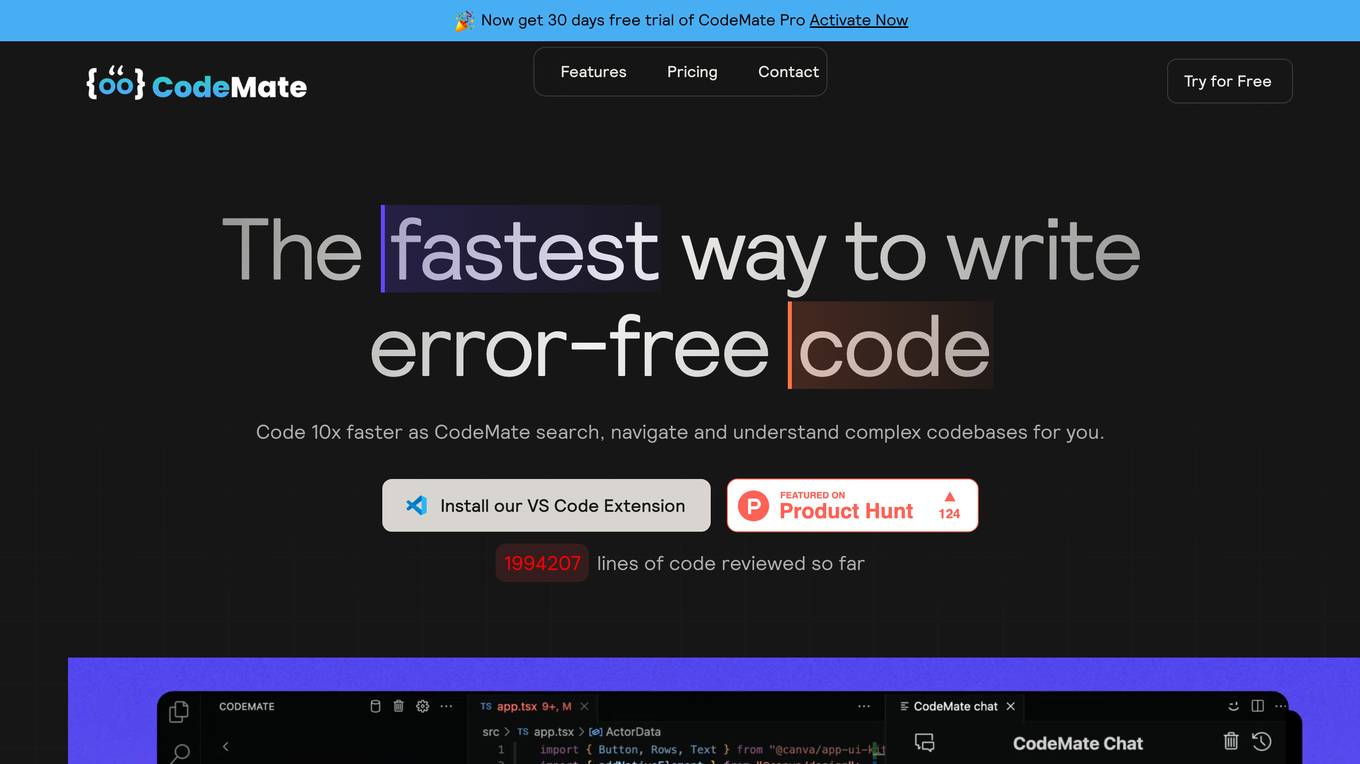
CodeMate
CodeMate is an AI pair programmer tool designed to help developers write error-free code faster. It offers features like code navigation, understanding complex codebases, intuitive interface for smarter coding, instant debugging, code refactoring, and AI-powered code reviews. CodeMate supports all programming languages and provides suggestions for code optimizations. The tool ensures the security and privacy of user code and offers different pricing plans for individual developers, teams, and enterprises. Users can interact with their codebase, documentation, and Git repositories using CodeMate Chat. The tool aims to improve code quality and productivity by acting as a co-developer while programming.
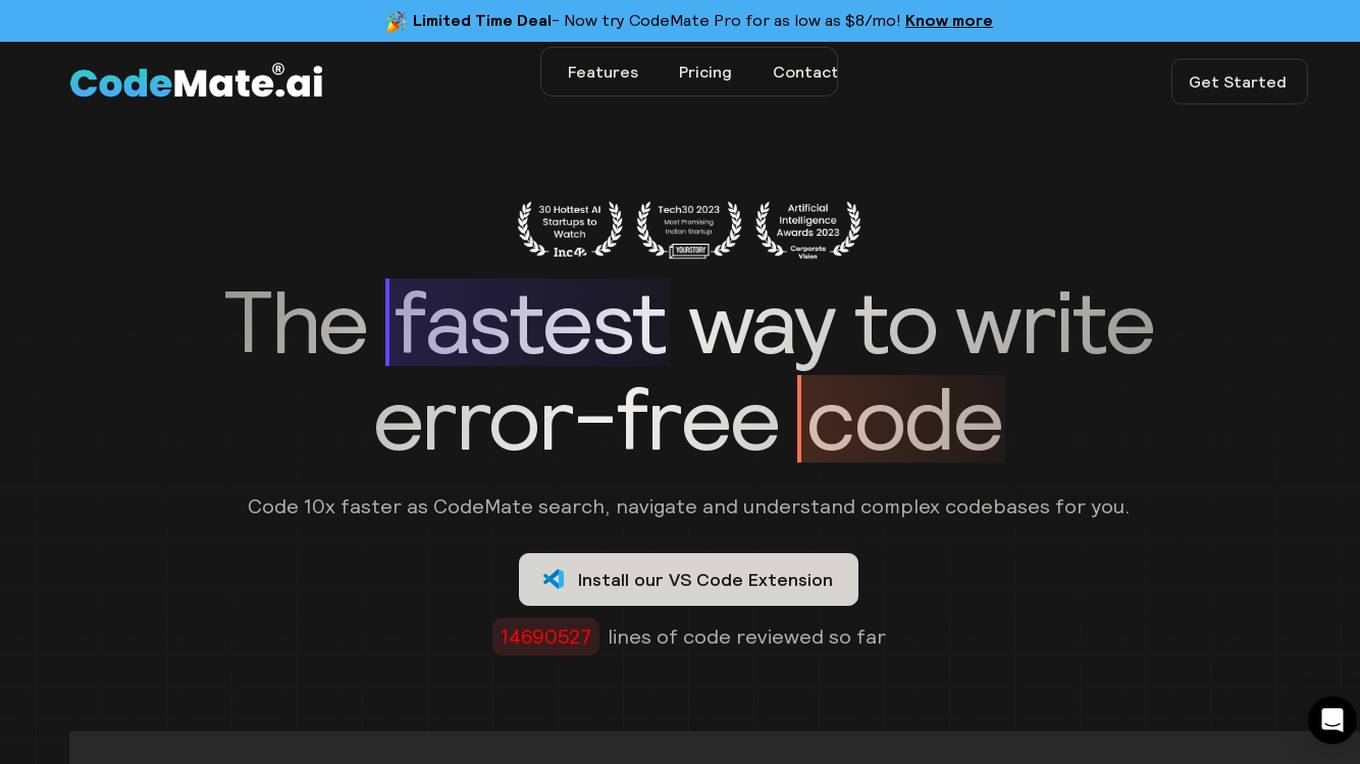
CodeMate
CodeMate is an AI pair programmer tool designed to help developers write error-free code faster and more efficiently. It offers features such as code analysis, debugging assistance, code refactoring, and code review using advanced AI algorithms and machine learning techniques. CodeMate supports various programming languages and provides a secure environment for developers to work on their projects. With a user-friendly interface and collaborative features, CodeMate aims to streamline the coding process and enhance productivity for individual developers, teams, and enterprises.

Cursor
Cursor is an AI-first code editor that helps developers build software faster. It provides a variety of features to help developers, including code completion, code generation, and error detection. Cursor is also designed to be easy to use and integrates with popular development tools like VSCode.
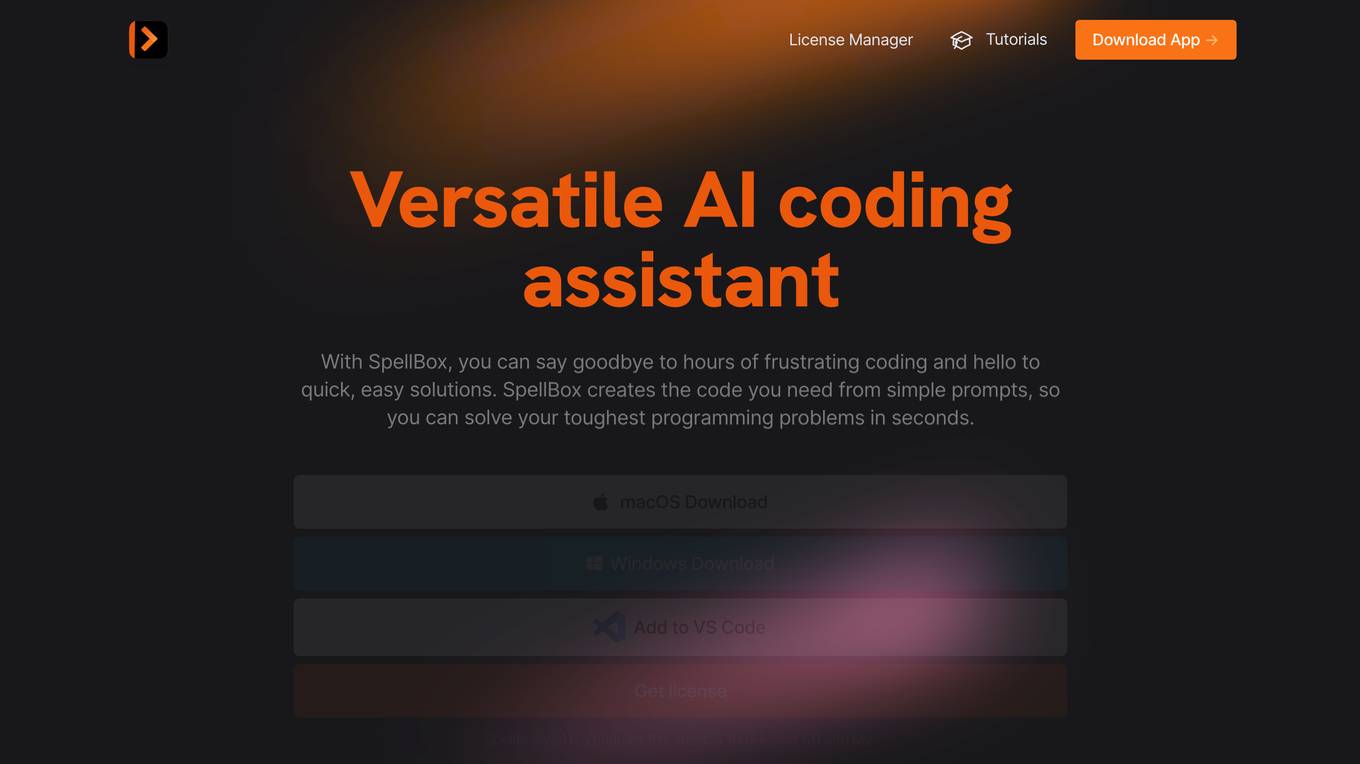
SpellBox
SpellBox is a versatile AI coding assistant that helps developers of all levels write code faster and more efficiently. With SpellBox, you can say goodbye to hours of frustrating coding and hello to quick, easy solutions. SpellBox creates the code you need from simple prompts, so you can solve your toughest programming problems in seconds.
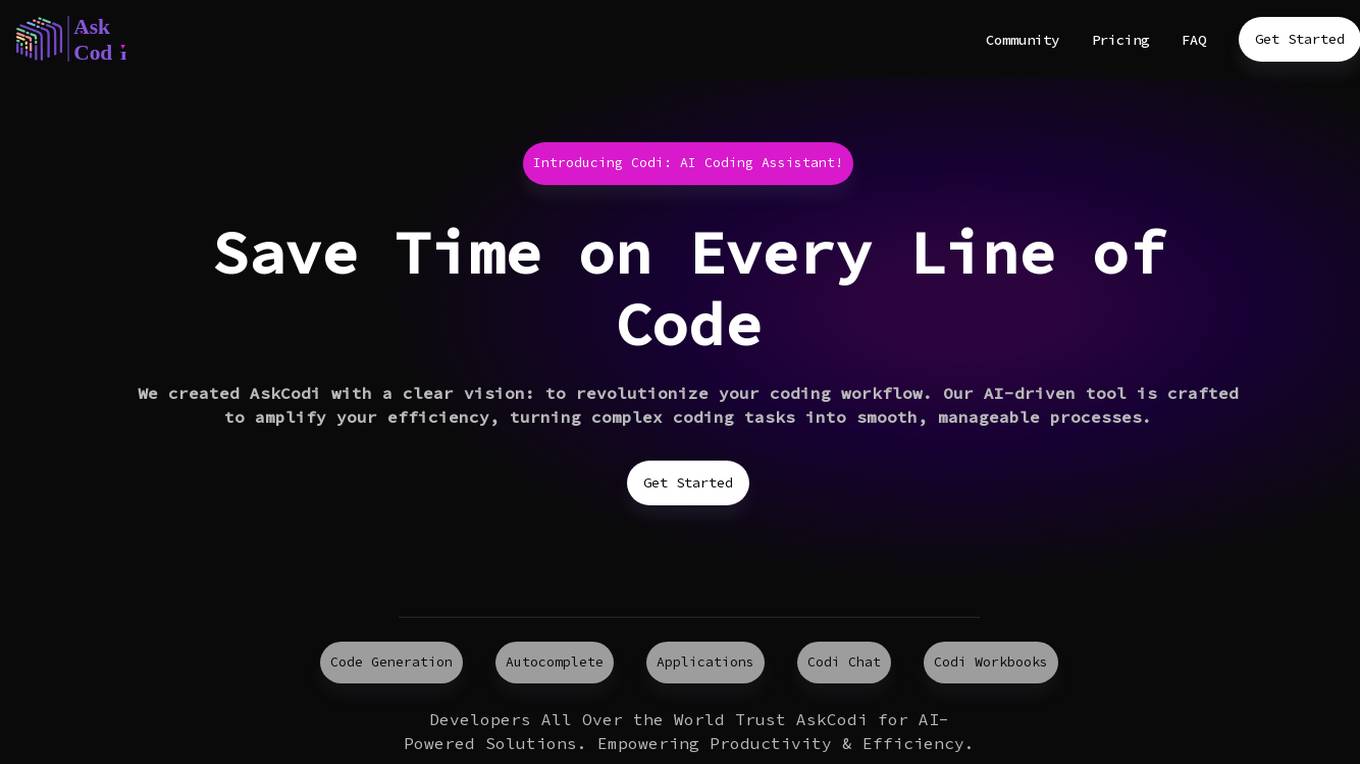
AskCodi
AskCodi is an AI-powered coding assistant designed to enhance developer productivity and efficiency. It offers a range of features, including AI-powered chat, workbooks, and integrations, to streamline coding tasks and improve code quality. AskCodi is trusted by developers worldwide for its ability to automate repetitive processes, provide real-time code suggestions, and enhance overall coding performance.
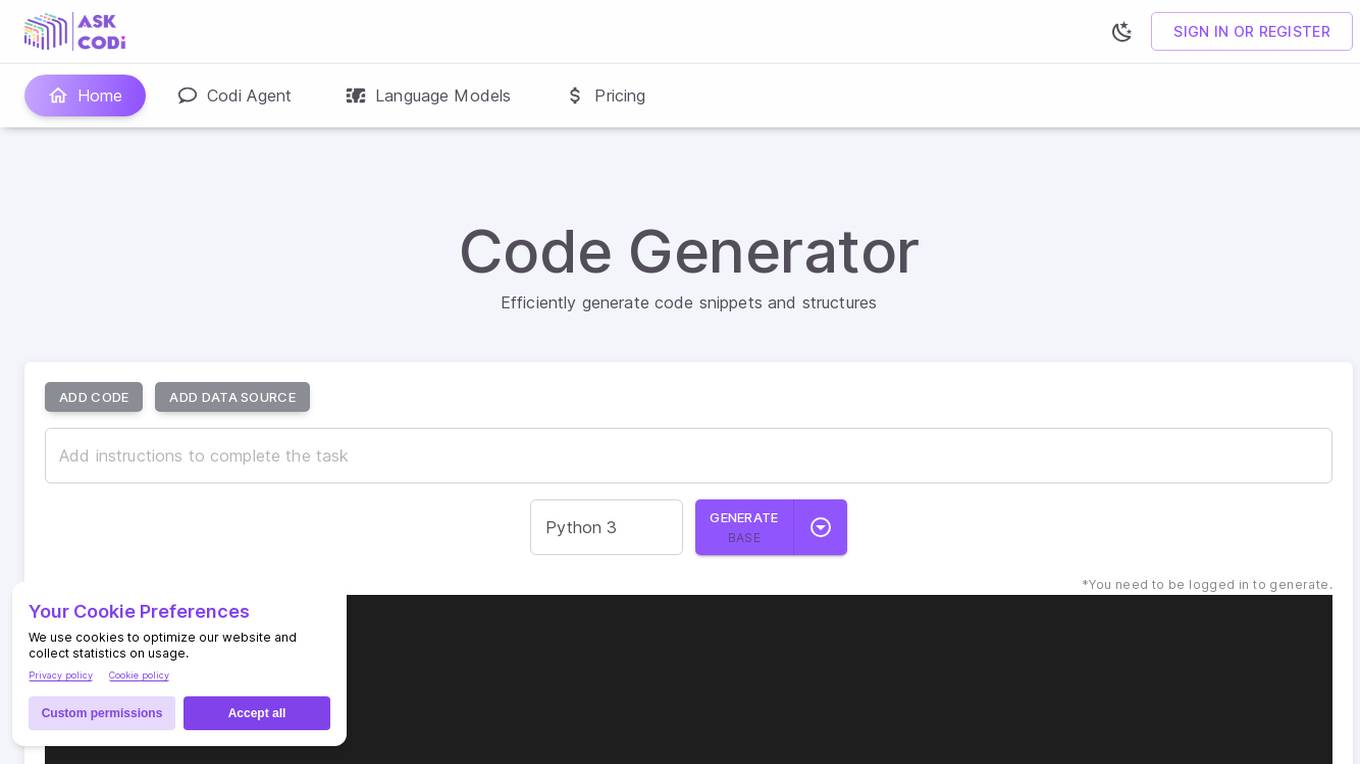
AskCodi
AskCodi is an AI coding assistant that helps developers write code more efficiently. It provides real-time suggestions, code completion, and error detection to streamline the coding process. With its advanced algorithms, AskCodi can understand the context of the code and offer relevant recommendations. By leveraging machine learning techniques, AskCodi continuously learns and improves its suggestions to better assist developers in their coding tasks.
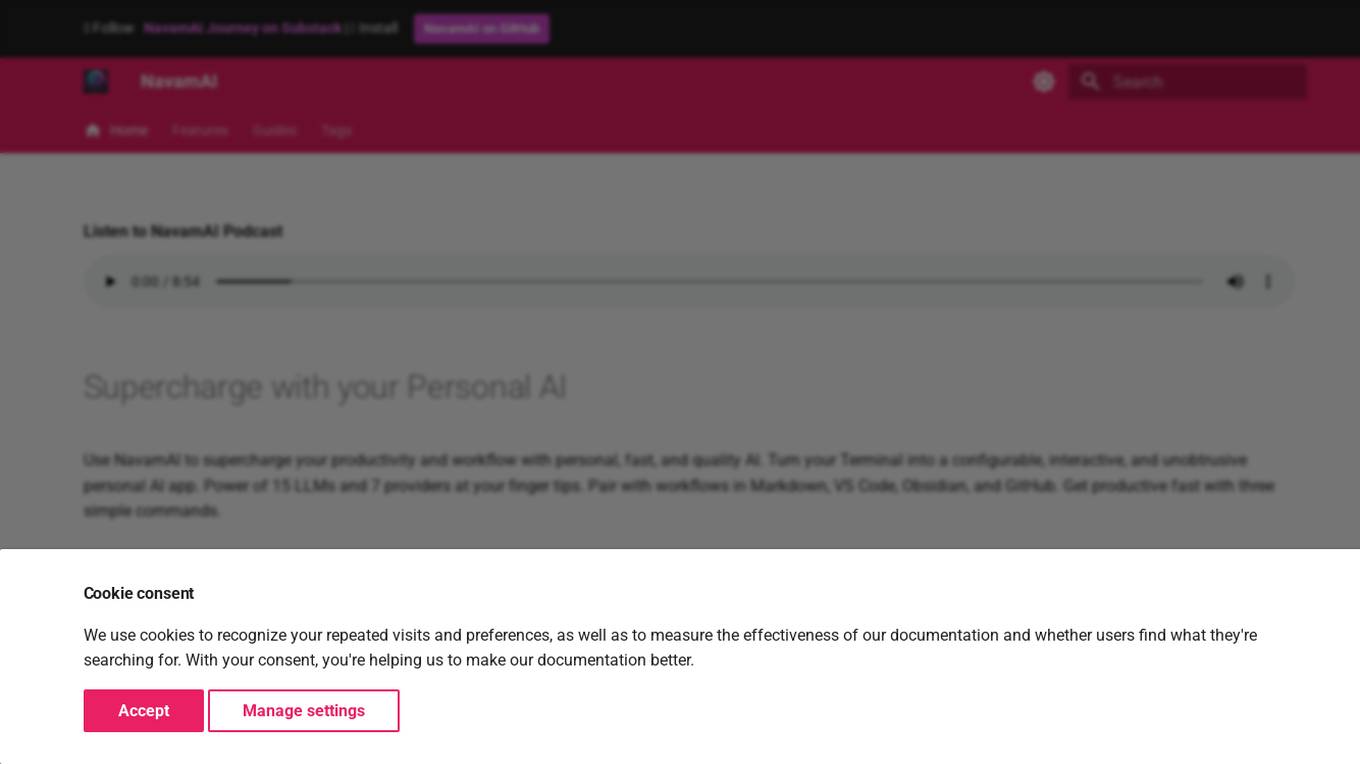
NavamAI
NavamAI is a personal AI tool designed to supercharge productivity and workflow by providing fast and quality AI capabilities. It offers a rich UI within the command prompt, allowing users to interact with 15 language models and 7 providers seamlessly. NavamAI enables users to automate markdown workflows, generate situational apps, and create personalized AI applications with ease. With features like quick start commands, customizable prompts, and privacy controls, NavamAI empowers users to do more with less and make their AI experience their own.

Cursor
Cursor is an AI-powered coding tool designed to make developers extraordinarily productive. It offers features such as AI-powered coding assistance in the IDE and CLI, mixed precision training, learning rate scheduling, and an experiment config system. Cursor is trusted by millions of professional developers for its accuracy, speed, and efficiency in coding tasks. It provides a seamless integration with popular platforms like GitHub and Slack, enhancing team collaboration and code review processes.

AI Sommelier
The AI sommelier is an innovative tool designed to help sell wine by creating memorable experiences for customers. It automates the process of creating offers and materials, allowing wine sales teams to increase efficiency and productivity. The tool is built on the expertise of renowned sommelier Julie Dupouy and has a proven track record of boosting sales and saving time for businesses in the wine industry. With simple pricing and customizable features, the AI sommelier is a valuable asset for distributors, retailers, and agents looking to stay ahead in the digital age of wine sales.
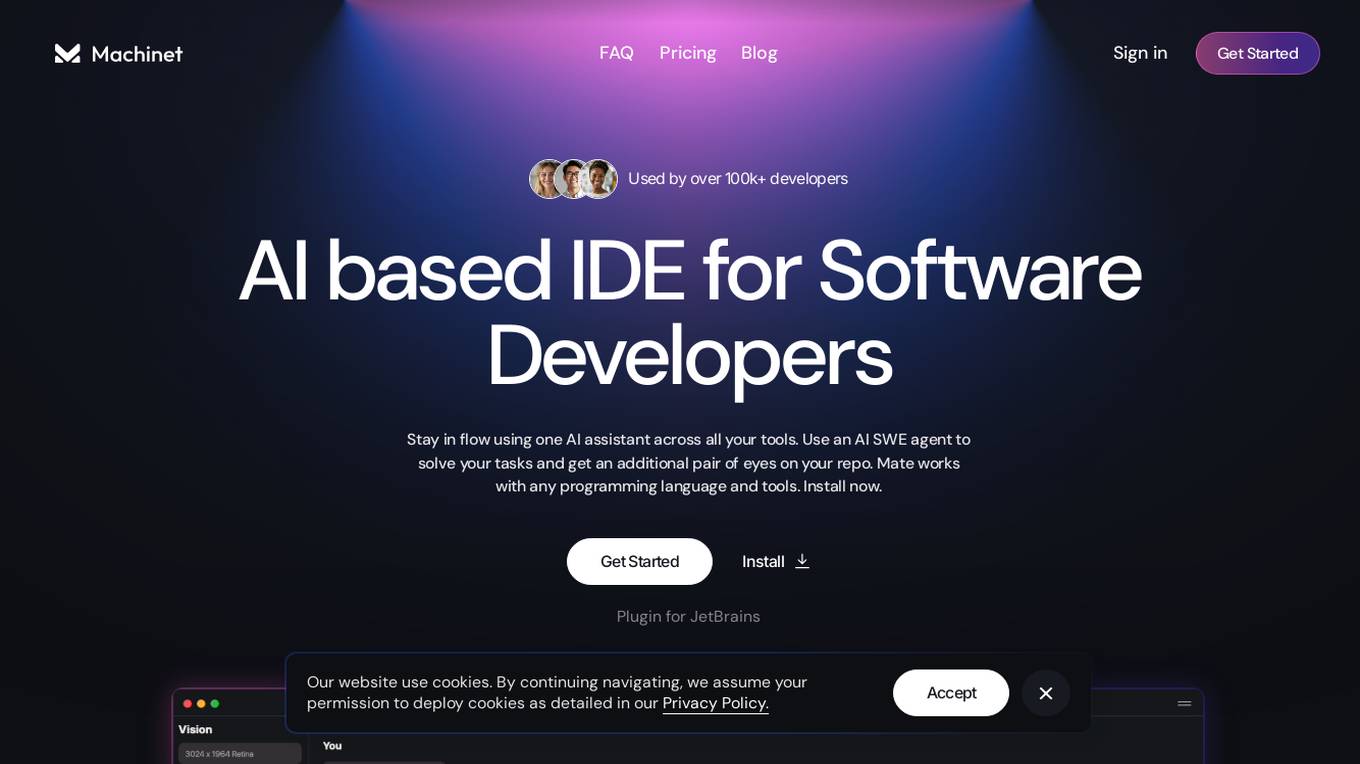
Machinet
Machinet is an AI Agent designed for full-stack software developers. It serves as an AI-based IDE that assists developers in various tasks, such as code generation, terminal access, front-end debugging, architecture suggestions, refactoring, and mentoring. The tool aims to enhance productivity and streamline the development workflow by providing intelligent assistance and support throughout the coding process. Machinet prioritizes security and privacy, ensuring that user data is encrypted, secure, and never stored for training purposes.

Frame
Frame is a pair of AI-powered glasses that gives you superpowers. With Frame, you can see the world around you in a whole new way. You can translate text and speech, search the web, and even hack into devices. Frame is open-source, so you can customize it to fit your needs. With Frame, the only limit is your imagination.
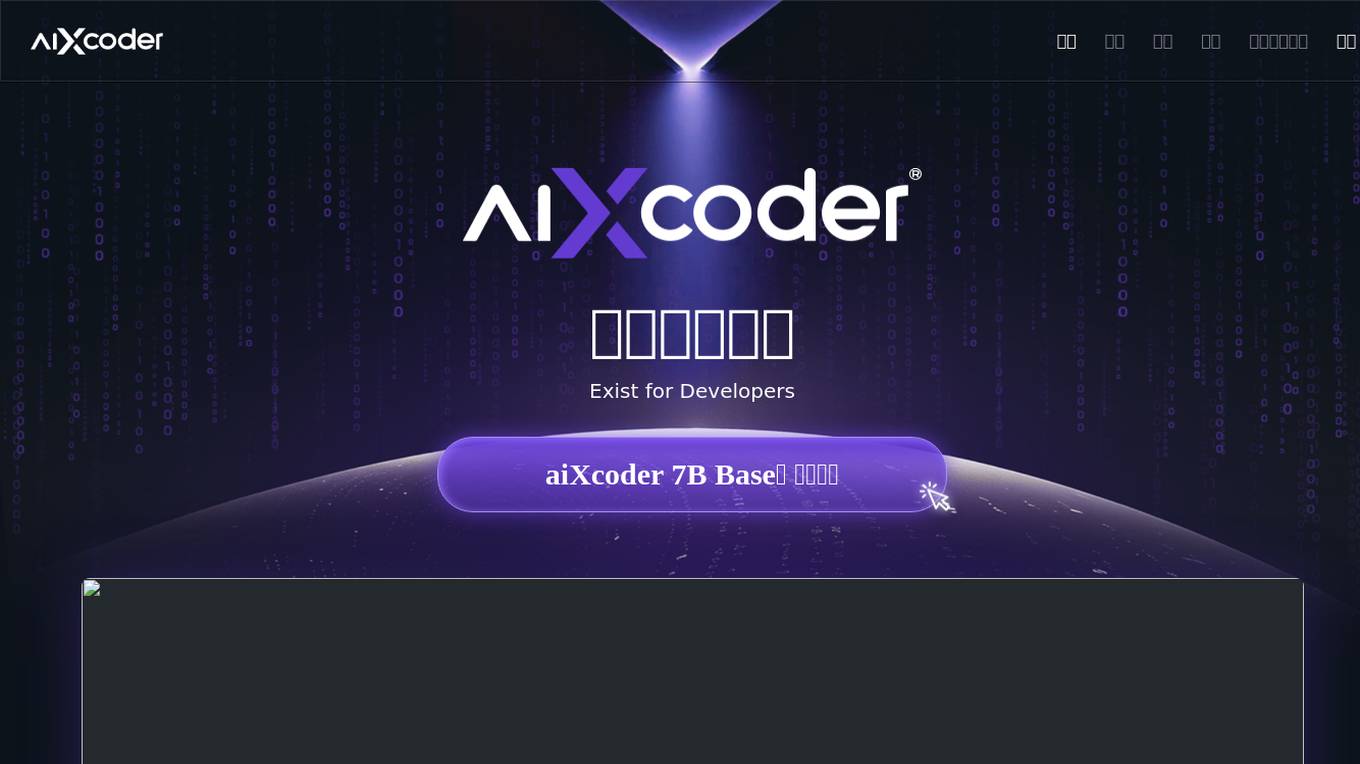
aiXcoder
aiXcoder is an innovative, intelligent programming robot product. It is provided as a "virtual programming expert" trained with professional code from various fields. Through pair programming with aiXcoder, programmers will feel significant improvements in working efficiency. With the help of aiXcoder, programmers will shake off the traditional "word-by-word" programming operation. aiXcoder could predict programmers' intentions intelligently and complete "the following code snaps" automatically. Programmers just need to confirm the generated code by one button click. Thus, it could improve coding efficiency dramatically.
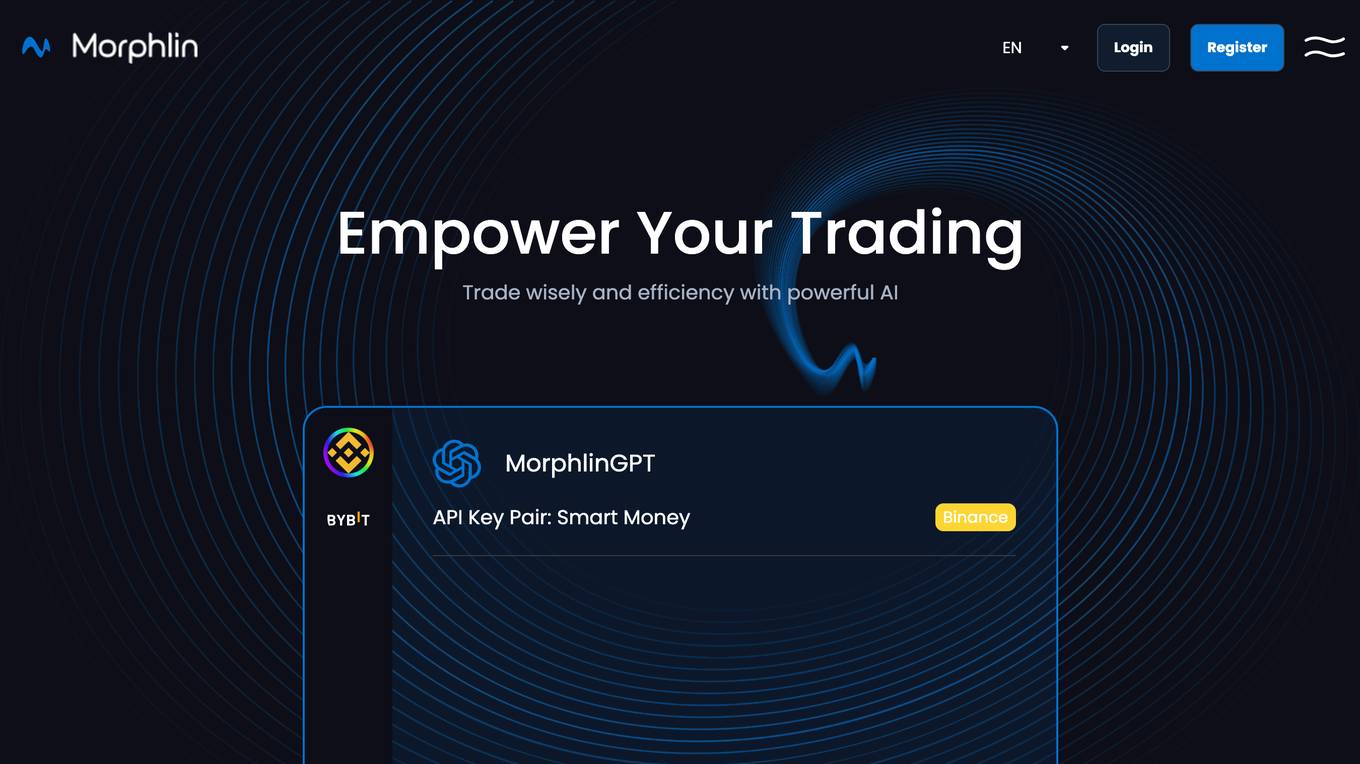
Morphlin
Morphlin is an AI-powered trading platform that empowers traders with smart tools and insights to make informed decisions. The platform offers a powerful AI MorphlinGPT API Key Pair for smart trading on Binance. Users can access real-time information, investment analysis, and professional research reports from third-party experts. Morphlin integrates data from mainstream markets and exchanges, providing clear information through a dynamic dashboard. The platform's core values include offering a good environment for researchers to share opinions and a referral program that shares 10% of Morphlin fees with community KOLs. With Morphlin, traders can trade wisely and efficiently, backed by AI technology and comprehensive market data.
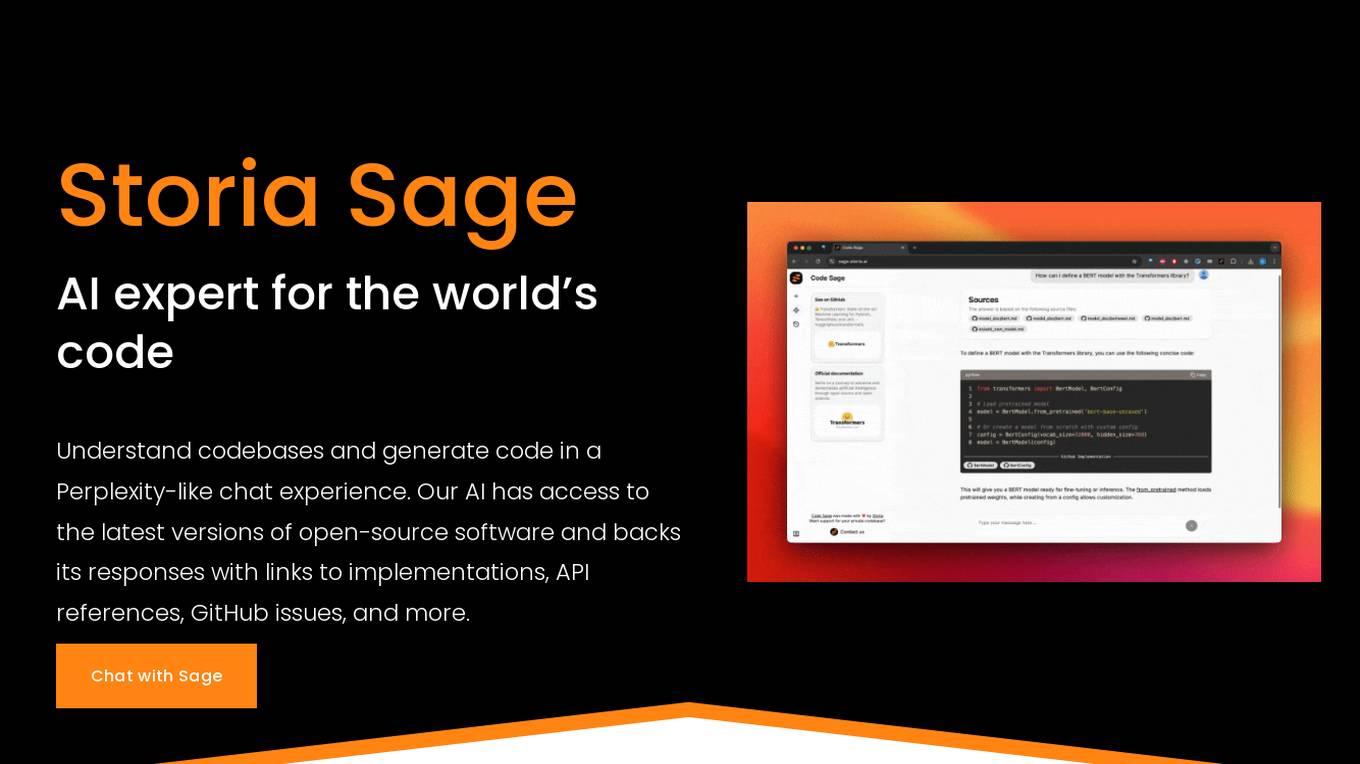
Storia AI
Storia AI is an AI tool designed to assist software engineering teams in understanding and generating code. It provides a Perplexity-like chat experience where users can interact with an AI expert that has access to the latest versions of open-source software. The tool aims to improve code understanding and generation by providing responses backed with links to implementations, API references, GitHub issues, and more. Storia AI is developed by a team of natural language processing researchers from Google and Amazon Alexa, with a mission to build the most reliable AI pair programmer for engineering teams.
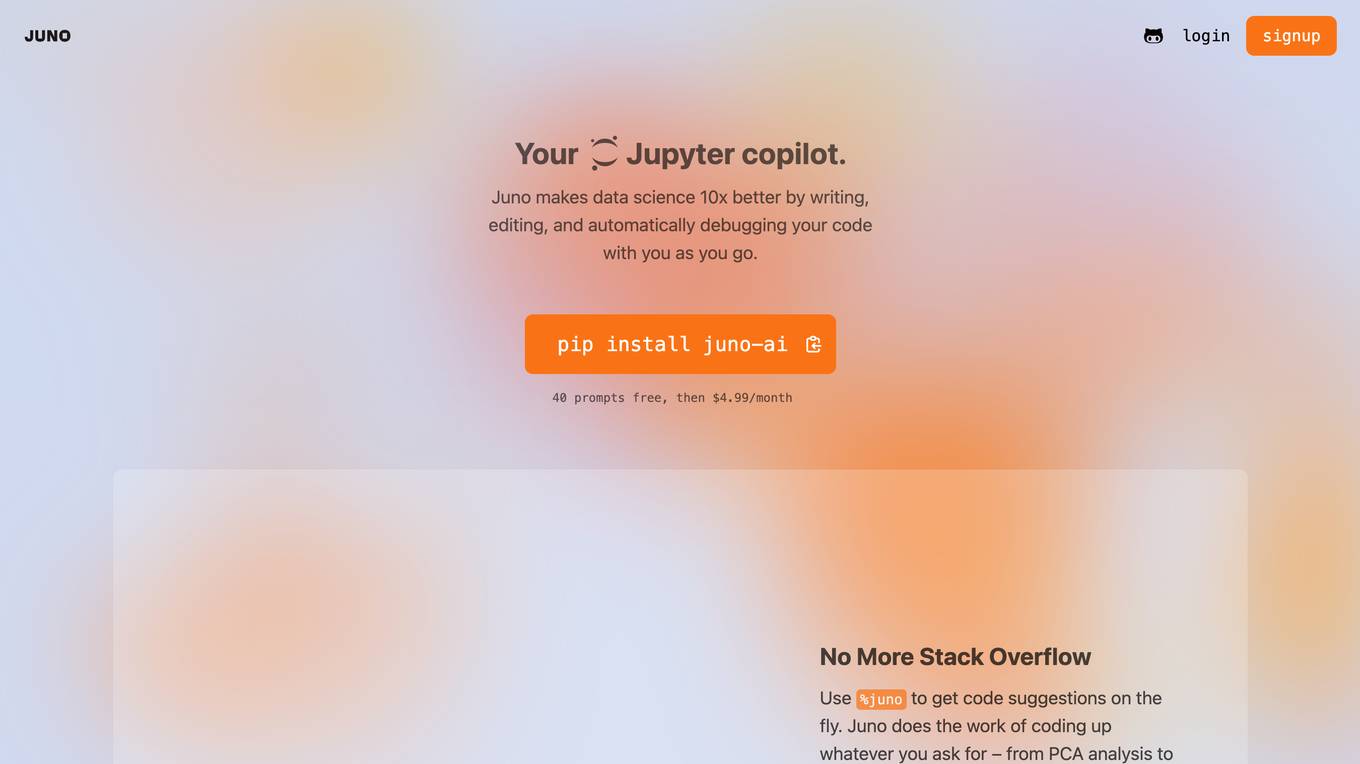
Juno
Juno is an AI tool designed to enhance data science workflows by providing code suggestions, automatic debugging, and code editing capabilities. It aims to make data science tasks more efficient and productive by assisting users in writing and optimizing code. Juno prioritizes privacy and offers the option to run on private servers for sensitive datasets.

Platvix
Platvix is an AI-powered platform that connects startups with investors. It offers a range of features to help startups find the right investors and to help investors find the most promising startups. Platvix's matchmaking engine uses AI to pair startups with investors based on their compatibility. The platform also provides investors with detailed insights into startup performance metrics and market trends. Platvix is designed to address the challenges that startups and investors face in connecting with each other. It provides a secure and transparent platform for startups to raise funding and for investors to find new investment opportunities.
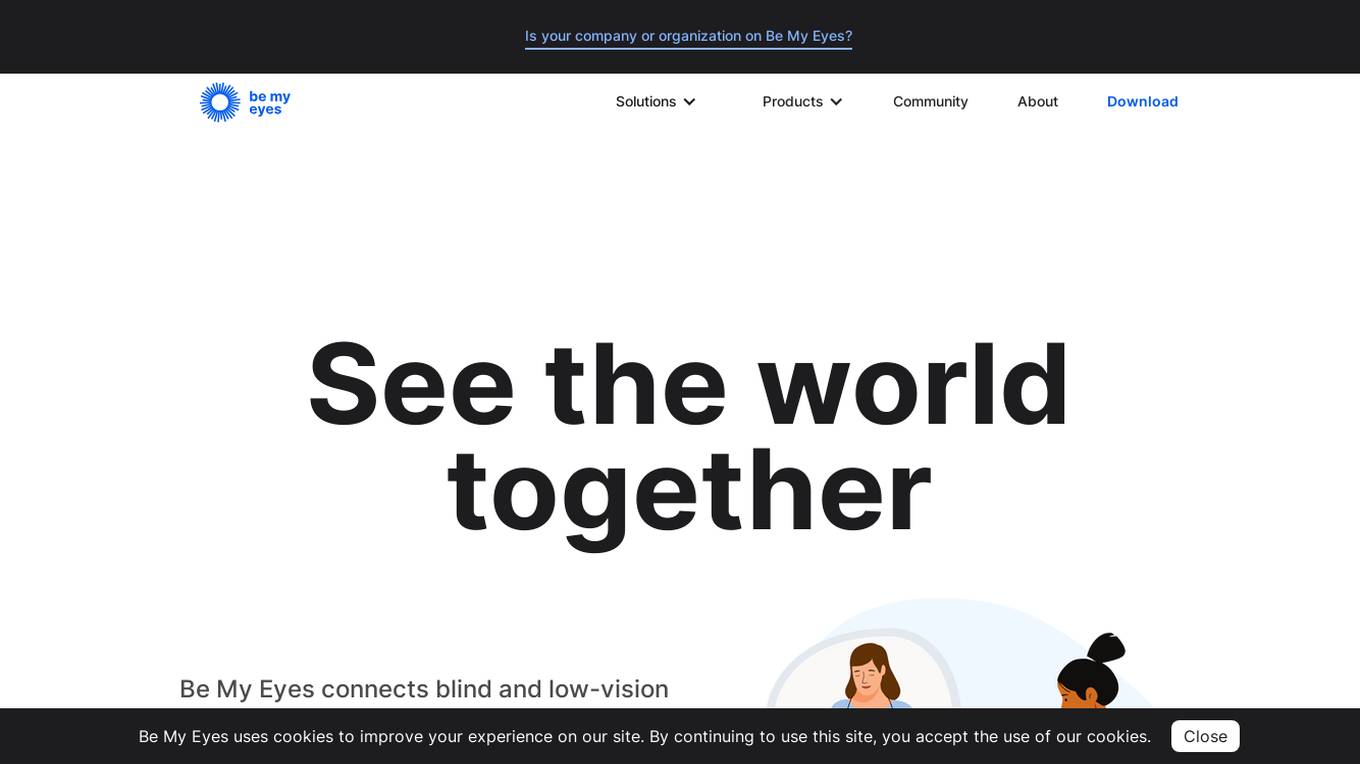
Be My Eyes
Be My Eyes is an AI-powered visual assistance application that connects blind and low-vision users with volunteers and companies worldwide. Users can request live video support, receive assistance through artificial intelligence, and access professional support from partners. The app aims to improve accessibility for individuals with visual impairments by providing a platform for real-time assistance and support.
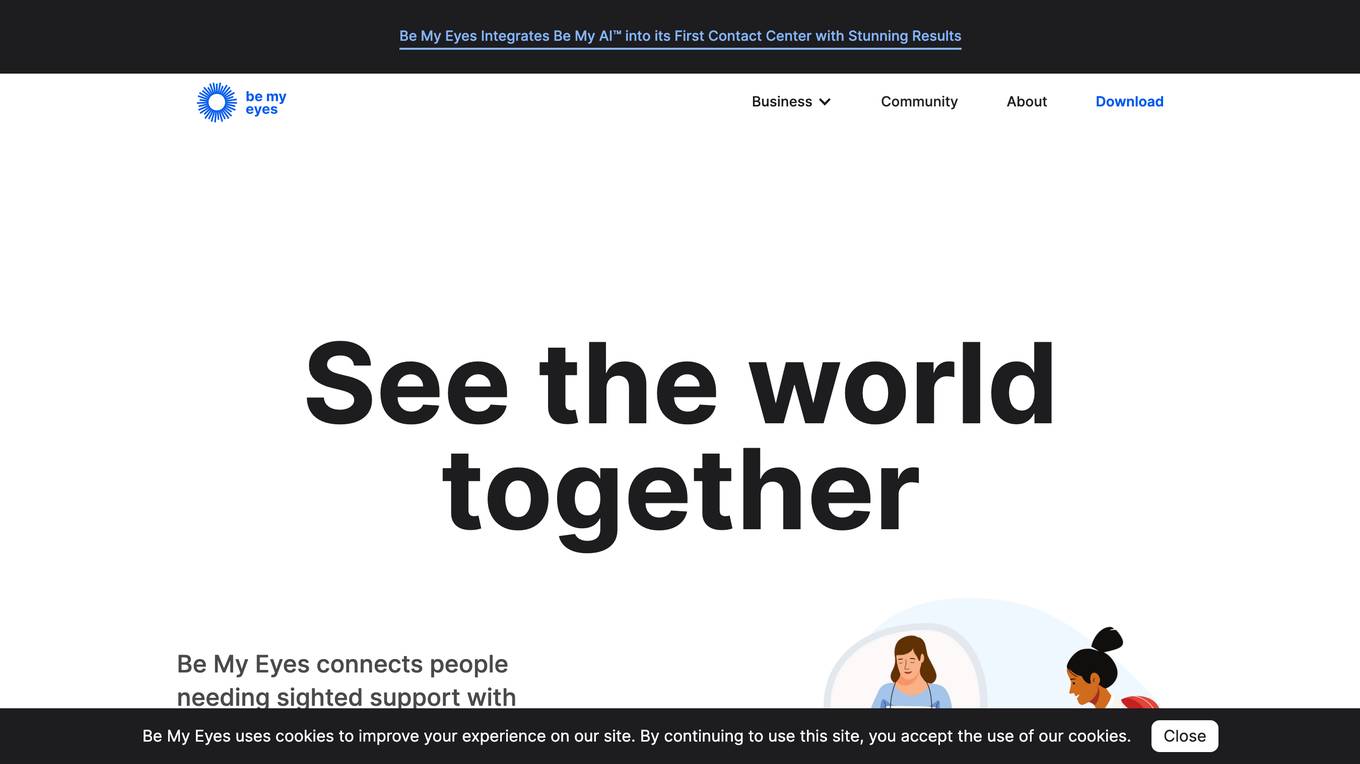
Be My Eyes
Be My Eyes is a free mobile app that connects blind and low-vision people with sighted volunteers and AI-powered assistance. With Be My Eyes, blind and low-vision people can access visual information, get help with everyday tasks, and connect with others in the community. Be My Eyes is available in over 180 languages and has over 6 million volunteers worldwide.

ChefGPT
ChefGPT is an AI-powered personal chef application that offers recipe recommendations, meal planning, and cooking assistance. With features like PantryChef for utilizing existing ingredients, MasterChef for recipe customization, MacrosChef for macronutrient-based recipes, MealPlanChef for fitness goals, PairPerfect for food and drink pairing, and MixologyMaestro for cocktail recipes, ChefGPT revolutionizes meal preparation and cooking experience. Users can enjoy personalized, healthy, and delicious recipes tailored to their dietary requirements and lifestyle, making meal planning easier and more enjoyable.
1 - Open Source AI Tools
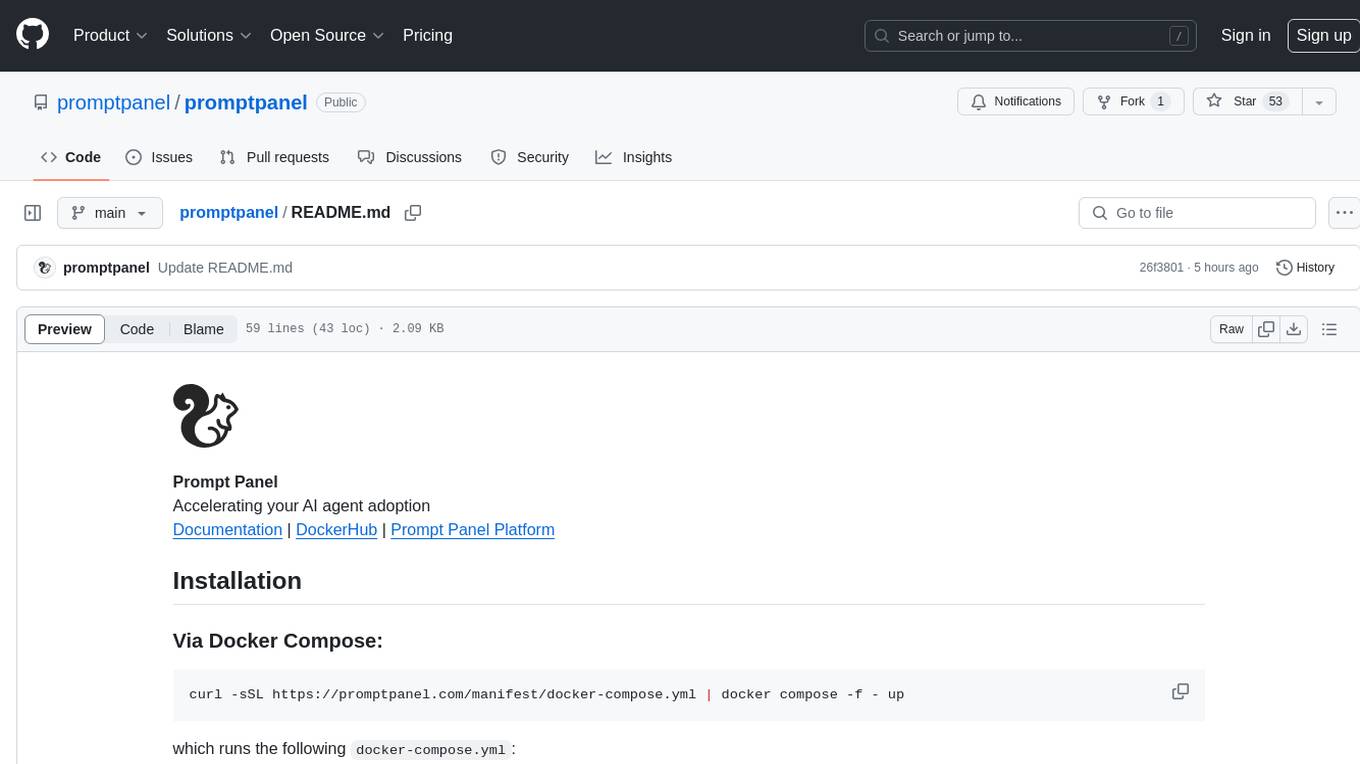
promptpanel
Prompt Panel is a tool designed to accelerate the adoption of AI agents by providing a platform where users can run large language models across any inference provider, create custom agent plugins, and use their own data safely. The tool allows users to break free from walled-gardens and have full control over their models, conversations, and logic. With Prompt Panel, users can pair their data with any language model, online or offline, and customize the system to meet their unique business needs without any restrictions.
20 - OpenAI Gpts
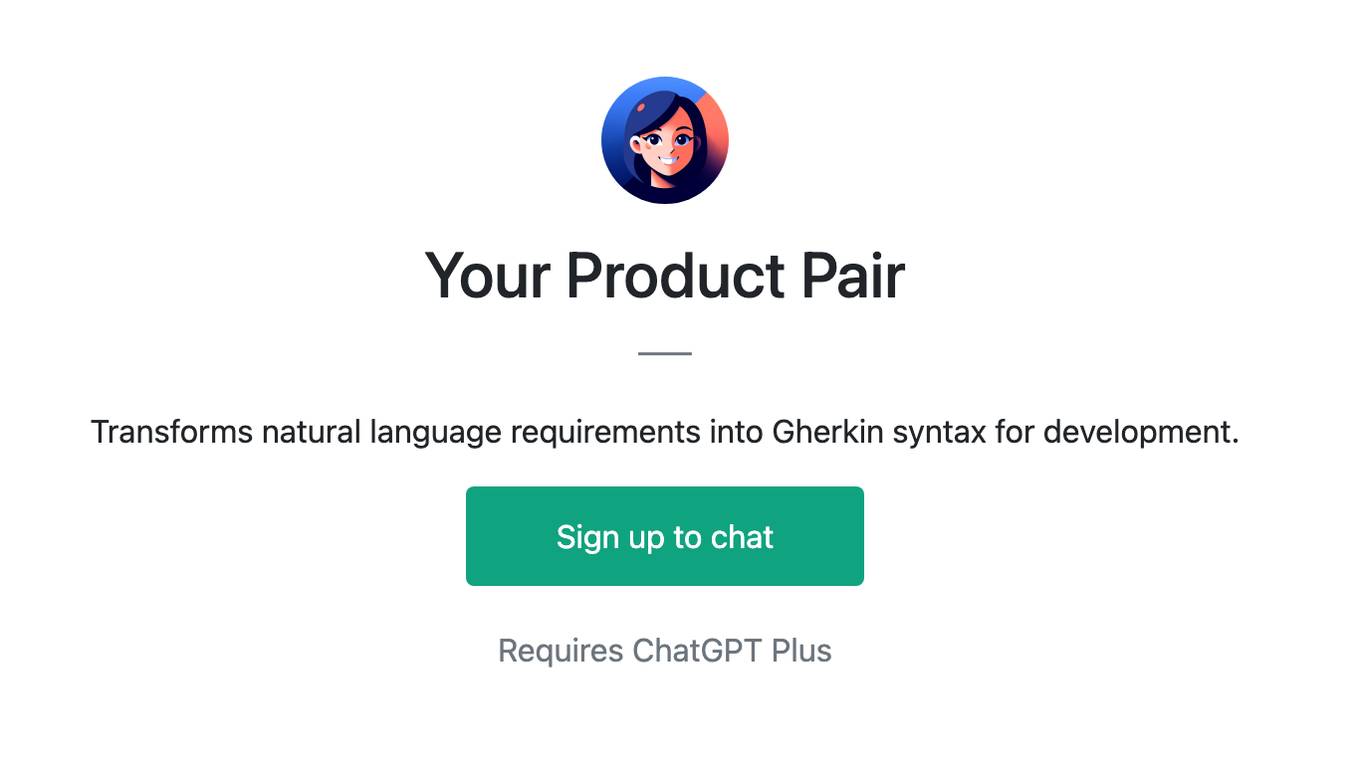
Your Product Pair
Transforms natural language requirements into Gherkin syntax for development.

Culinary Food and Recipe Chef Companion
I pair every recipe with a visual aid for an enhanced cooking experience.
Swapzone
Swapzone is a non-custodial instant crypto exchange aggregator that helps users scan the network of registered exchanges globally and gives them a comprehensive list of those that support a particular trading or swap pair.
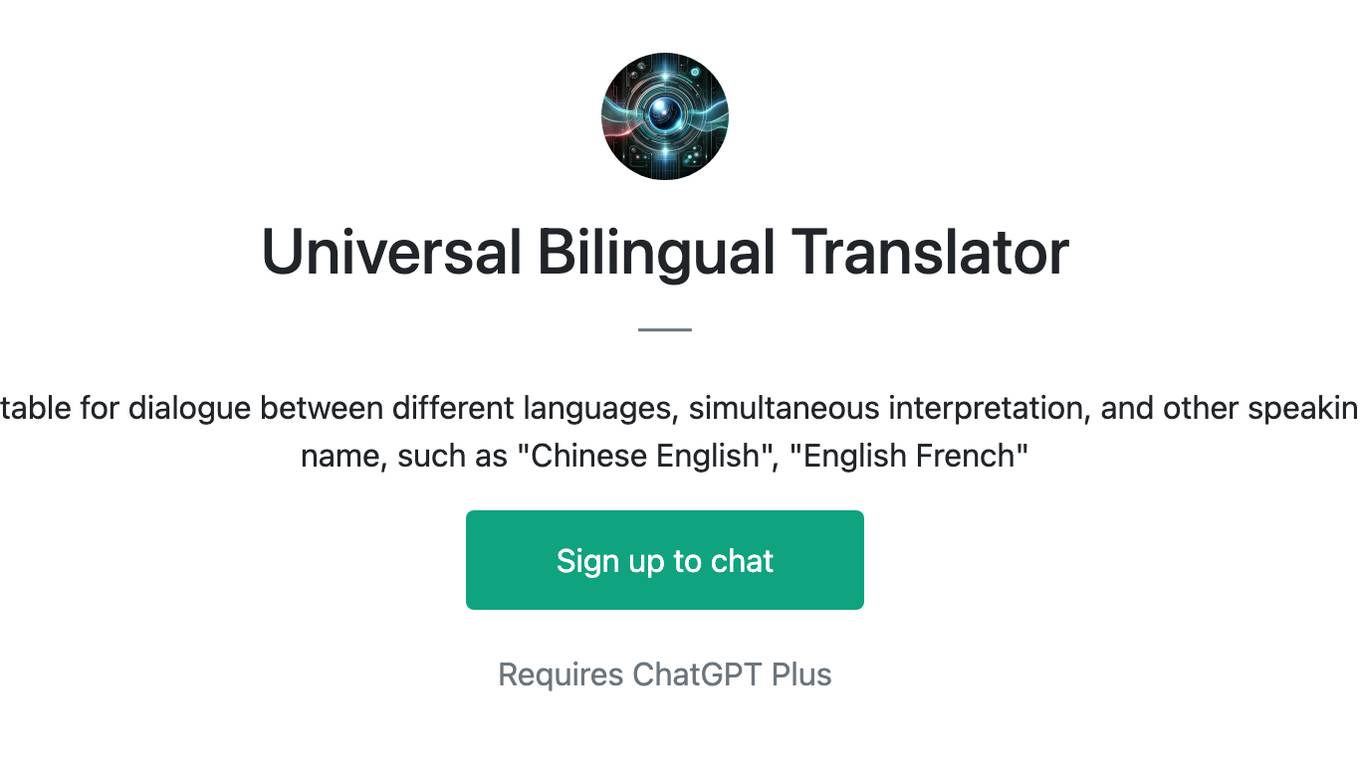
Universal Bilingual Translator
The universal bilingual translation GPT is suitable for dialogue between different languages, simultaneous interpretation, and other speaking scenarios. Starts with a pair of language name, such as "Chinese English", "English French"

Legendary Leggings
Fashion-savvy AI with a valley girl flair, guiding users to leggings styles.
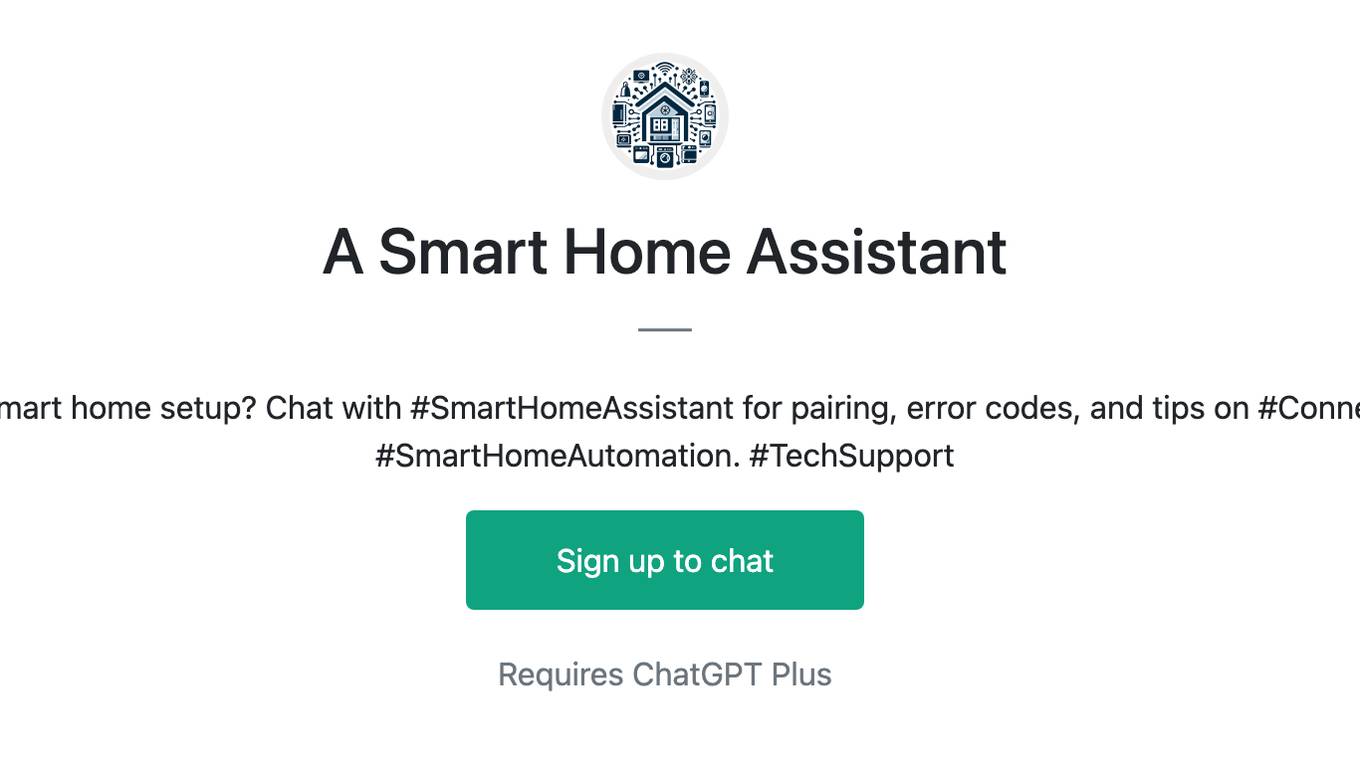
A Smart Home Assistant
Have a quick question regarding your smart home setup? Chat with #SmartHomeAssistant for pairing, error codes, and tips on #ConnectedDevices. Your essential guide to #SmartHomeAutomation. #TechSupport

